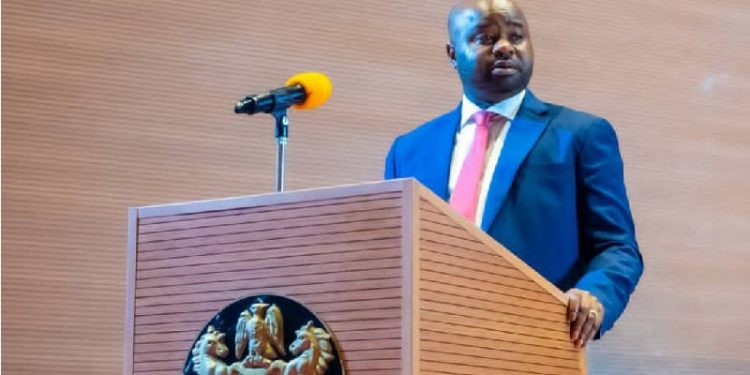The head of Nigeria’s tax authority has called for deeper partnerships between government institutions and universities to help the country become a centre of innovation capable of solving real economic problems. The remarks were made during a distinguished lecture at a university in Osun State, where he analysed Nigeria’s revenue challenges and the strategies being used to build economic resilience under ongoing national reforms.
Speaking on the theme of economic resilience in a period of shrinking revenue, the tax chief explained that Nigeria’s financial pressures require a shift from dependence on crude oil to a more diversified economy powered by agro-processing, the digital sector, the creative industry, solid minerals, and other emerging value chains. He said the tax authority has been working to expand and modernise the country’s tax base through automation, digitisation, harmonisation with state systems, and a general repositioning designed to rebuild public trust.
He stressed that government reforms alone cannot secure the stable economic future the country needs, adding that academics, researchers, and industry players must contribute ideas and innovation. According to him, universities should become centres that develop practical solutions capable of moving the economy forward, especially as the country demands more resilience from its productive sectors.
He noted that the tax authority is ready to work with tertiary institutions to bridge the gap between policy and practice. He outlined areas where such collaboration could begin, including joint studies on domestic revenue mobilisation, improved equity within the tax system, digital tools that can transform tax administration, and innovation hubs that bring academics and practitioners together to test new policy models before national deployment.
Addressing students, he encouraged them to develop critical thinking, institutional competence and a strong sense of national service, describing these qualities as essential for building a stronger and more resilient Nigeria. He also shared personal stories illustrating the long-term impact of mentorship, recounting how a lecturer once supported him financially and defended his integrity during a professional examination. The incident, he said, shaped his career and reinforced his commitment to helping others rise.
Earlier, while welcoming guests, the university’s vice-chancellor said the institution’s public lecture series is designed to tackle major national and global challenges and to encourage conversations that can lead to sustainable solutions for Nigeria’s economy.
For MSMEs across Africa, the message from the lecture is clear. As governments push for diversified revenue and stronger economic foundations, small businesses remain central to new growth engines such as agro-processing, the creative economy, digital services, and mineral value chains. Stronger collaboration between universities, industry players, and public institutions could make it easier for MSMEs to access research-backed solutions, clearer tax systems, and innovative policies that support survival and growth during economic uncertainty.










